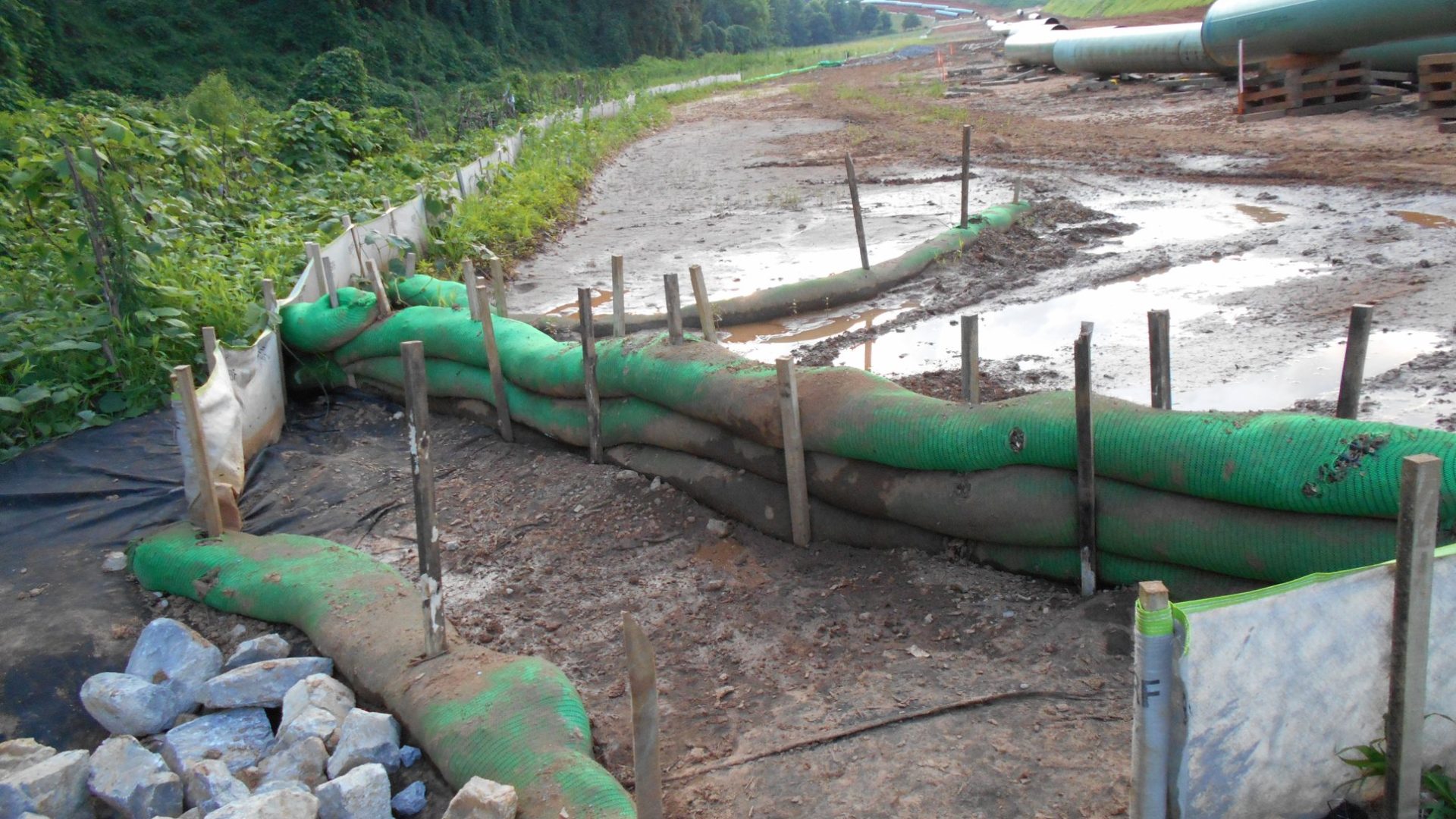
With Construction Temporarily Halted, Help Step Up Pressure Against the Atlantic Coast and Mountain Valley Pipelines
Construction of the Mountain Valley and Atlantic Coast pipelines has been halted for now. It’s time to stop them for good.

Mountain Valley pipeline mess: Anne Way Bernard
The news has been coming in thick and fast from the ongoing battles to stop two fracked gas pipelines that are being forced through Appalachia and beyond. Both the Mountain Valley and Atlantic Coast pipelines have been ordered to stop construction amidst vacated federal permits and multiple environmental violations.
Resistance has been gaining pace, with epic tree sits and creative blockades, including one West Virginia grandmother locking herself down in the 1970s Ford Pinto that was her first car.
Resistance has also been strong in the courts. Attorneys with the Sierra Club and the Southern Environmental Law Center won major victories in the past two weeks to overturn permits that were incorrectly issued by the Fish and Wildlife Service, National Parks Service, U.S. Forest Service and Bureau of Land Management. The court’s vacating of these permits means that the route of each project is now uncertain. This left the Federal Energy Regulatory Commission (FERC) no choice but to order work to stop until the issues with the permits are settled. If they can be settled.
The fact is that these federal agencies broke or changed the rules in order to give these pipeline companies what they wanted, threatening endangered species and water quality in doing so. Now a question mark hangs over whether they can permit these projects and protect the natural resources that they’re supposed to be stewarding on behalf of the American people.
These pipelines have already wreaked havoc and destruction upon everything they have touched. Regulators and citizen groups have cited both projects with numerous violations across West Virginia and Virginia as heavy rains, fueled by climate change, have caused serious erosion of fragile mountain soils exposed by construction work. Creeks and rivers have filled with sediment, choking aquatic life and impacting the headwaters of the region’s river systems for years to come. As Virginia state senator John Edwards (D-Roanoke) stated in a recent letter to Governor Northam, “[i]t is not an overstatement to say that science dictates that [the Mountain Valley] pipeline cannot be safely built in this area.”
I live in these mountains and I know some of the farmers who have had to give up some of their best pasture to make way for these projects, against their will and at the hands of unjust eminent domain laws that favor greedy corporations over people. Some of them feel they can no longer pursue the farming practices they strived to maintain. I have seen the destruction for myself.
Climate science also dictates that we should be winding down the fossil fuel age, not digging in deeper. It is a myth that building more fossil gas infrastructure is some kind of ‘bridge’ to the clean energy transition we need to make. While certain politicians talk about climate action they also repeat the fossil fuel industry’s mantra that gas is the ‘cleanest’ fossil fuel and that we cannot achieve the clean energy transition without it. This is nonsense.
Leaking methane makes gas dirtier than the industry will admit. Even if we could eliminate all methane leaks – which is highly unlikely – we still have to reduce the amount of gas we’re burning today at the same time that we eliminate coal and oil.
So it’s time to take advantage of this pause in the madness that has been taking place in Virginia and West Virginia (and was about to start in North Carolina in the case of the Atlantic Coast pipeline). We need to make our voices heard once again in the hope that for once our leaders will lead.
There are a number of opportunities to do this in the coming days. It doesn’t matter if you don’t live in these states. We all care about our climate. We all care about the forests in Appalachia, some of the most diverse in the world. We all care about the rights of communities to reject pollution and destruction in their midst.
Here’s what you can do:
Get informed: go here to hear the excellent podcasts at End of the Line.
Stay in touch with action against these pipelines at this facebook page.
Whatever you can do to help those fighting these disastrous projects, now’s the time to do it.
